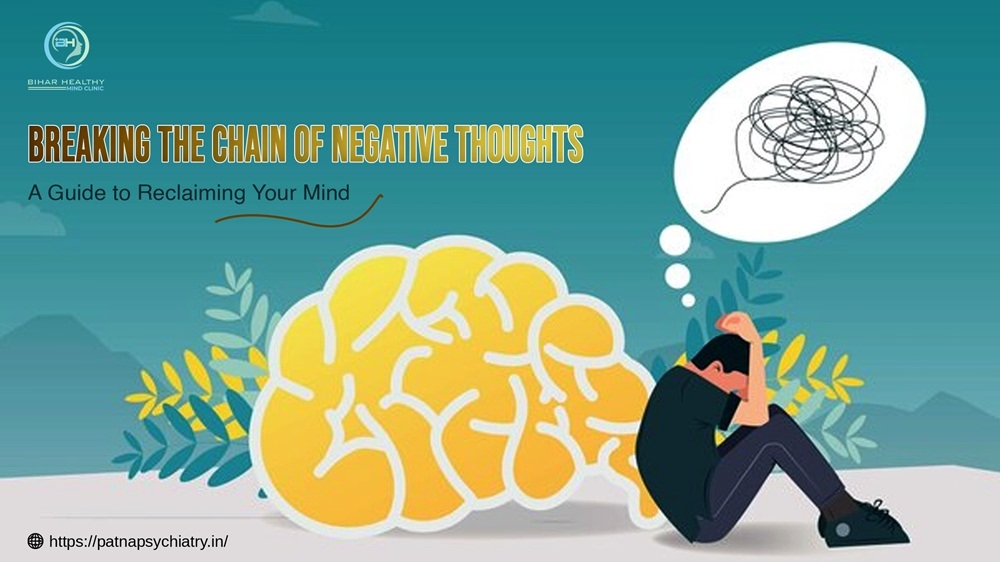Behind every individual navigating the complexities of mental illness stands a caregiver—a person who provides emotional, physical, and financial support, often at the expense of their own well-being. Despite their critical role, caregivers frequently remain in the shadows, overshadowed by the focus on patients. Caregiving is not just an act of love; it is a demanding and multifaceted responsibility that requires resilience, adaptability, and sacrifice. This blog explores the diverse dimensions of caregiving, including cultural differences, coping mechanisms, and the systemic changes needed to support these unsung heroes.
Who Are Mental Health Caregivers?
Caregivers for individuals with mental health conditions include parents, spouses, siblings, children, or even close friends. These individuals often have no formal training but dedicate their lives to ensuring the well-being of someone they care about.
Consider Anita, a 52-year-old teacher who cares for her 24-year-old son with schizophrenia. Anita manages his medication, takes him to therapy, and provides emotional support. While she finds meaning in her role, the constant demands have left her physically exhausted and emotionally drained. Anita’s story mirrors the experiences of millions of caregivers who navigate similar challenges.
The Dimensions of Caregiving Burden
Caregiving is an intensely personal journey, but research highlights common challenges that caregivers face:
- Physical Strain
Caregivers often experience fatigue from the physical demands of caregiving. Tasks such as administering medications, managing appointments, and ensuring patient safety require constant vigilance, leading to chronic exhaustion.
- Emotional and Psychological Challenges
Caregivers frequently grapple with feelings of guilt, anxiety, and depression. The unpredictable nature of mental illnesses, coupled with the emotional toll of witnessing a loved one’s struggles, creates significant psychological distress.
- Financial Stress
Mental health caregiving often involves significant financial costs, including therapy sessions, medications, and missed work opportunities. Many caregivers reduce their working hours or leave their jobs entirely, leading to long-term financial insecurity.
- Social Isolation
Caregivers often find themselves withdrawing from social activities, either due to a lack of time or the stigma associated with mental illness. This isolation can lead to loneliness, further exacerbating emotional stress.
- Role Conflict
Balancing caregiving with other responsibilities—such as parenting, work, or personal goals—creates significant tension. Many caregivers feel they must choose between their own aspirations and the needs of their loved ones.
Cultural Perspectives on Caregiving
Caregiving practices and perceptions vary widely across cultures, influenced by societal norms, family structures, and attitudes toward mental illness.
- Family-Centric Societies
In collectivist cultures like those in India, China, and Japan, caregiving is often seen as a family duty. Relatives, particularly women, are expected to assume caregiving roles, even at the expense of their personal ambitions. Seeking professional help is sometimes viewed as a failure of familial responsibility.
- Individualistic Cultures
In Western countries, caregiving roles are more fluid, with professional caregiving services playing a significant role. However, even in these societies, caregivers face emotional burdens and often feel undervalued.
- Gendered Expectations
Globally, caregiving responsibilities disproportionately fall on women due to traditional gender roles. Female caregivers face additional challenges, including societal expectations to balance caregiving with other domestic and professional duties.
- Stigma and Mental Health Awareness
Cultural stigma surrounding mental illness affects caregiving experiences. In societies where mental health issues are misunderstood or stigmatized, caregivers may hesitate to seek external support or share their struggles.
Coping Mechanisms: How Caregivers Adapt
Caregivers employ various strategies to manage the demands of their roles. These mechanisms are critical for their well-being and the quality of care they provide.
- Building Social Support Networks
Caregivers often turn to family, friends, or support groups for emotional and practical assistance. Sharing experiences with others in similar situations can alleviate feelings of isolation and provide valuable insights.
- Seeking Professional Help
Many caregivers benefit from therapy or counseling, which helps them process their emotions and develop coping strategies. Psychoeducational programs also equip caregivers with skills to handle complex caregiving tasks.
- Practicing Self-Care
Prioritizing physical health through regular exercise, balanced nutrition, and adequate sleep is essential for caregivers. Mindfulness and relaxation techniques, such as yoga or meditation, can also reduce stress.
- Respite Care
Respite care services provide temporary relief by taking over caregiving responsibilities for short periods. This allows caregivers to rest, recharge, and focus on their own needs.
- Leveraging Technology
Digital tools, such as mobile apps for medication management or online therapy sessions, can streamline caregiving tasks and provide convenient access to resources.
The Ripple Effects of Caregiving on Families
Caregiving not only impacts the caregiver but also influences family dynamics. Roles within the family often shift, creating tension or strengthening bonds:
- Strengthened Relationships
Shared caregiving responsibilities can foster collaboration and strengthen family ties. Many caregivers report a deeper sense of connection with the care recipient.
- Role Conflicts and Resentments
Unequal distribution of caregiving duties can create tension among family members. Siblings or extended relatives may disagree on care strategies or avoid involvement altogether.
- Impact on Children
Children in caregiving households may take on caregiving roles themselves, affecting their education, social development, and mental health. While some develop resilience and empathy, others may struggle with the added responsibilities.
The Role of Healthcare Systems
Healthcare systems play a crucial role in supporting caregivers. Comprehensive policies and accessible resources can significantly alleviate caregiver burdens.
- Integrated Care Plans
Healthcare providers should include caregiver well-being as a component of patient care plans. Regular check-ins, counseling, and caregiver education can make a significant difference.
- Financial Support
Governments can introduce caregiver stipends, tax benefits, and subsidies for medical expenses. Employment protections, such as flexible work arrangements, can also help caregivers balance their responsibilities.
- Training and Resources
Caregiver training programs can improve caregivers’ confidence and competence in managing medical and behavioral issues. Community resources, such as support groups and hotlines, offer additional support.
- Public Awareness Campaigns
Educating the public about mental health and caregiving can reduce stigma and encourage more open discussions. This creates a supportive environment for both caregivers and care recipients.
A Global Perspective: Contrasts and Commonalities
- High-Income Countries
In countries like the United States and Germany, caregivers benefit from robust healthcare systems and social services. However, they still face emotional and financial challenges, particularly when navigating complex bureaucracies.
- Low- and Middle-Income Countries
Caregivers in countries like India or Nigeria often lack access to professional resources. Community-based support systems and extended family networks play a more prominent role but are insufficient to meet the growing demand.
Innovative Approaches to Supporting Caregivers
- Telehealth Solutions
Telemedicine and online support groups connect caregivers with healthcare professionals and peers, reducing the barriers of distance and time.
- Workplace Policies
Employers can implement caregiver-friendly policies, such as paid leave and remote work options, to accommodate caregiving responsibilities.
- Cultural Sensitivity in Interventions
Programs designed to support caregivers must consider cultural norms and values to ensure their relevance and effectiveness.
- Technological Tools
Apps that track medication schedules, provide reminders, and offer mental health resources can ease caregivers’ workloads.
Real-Life Story: Finding Strength Through Community
Maria, a caregiver in Brazil, struggled to manage her husband’s bipolar disorder while raising two children. Initially hesitant, she joined a local support group where she met others facing similar challenges. The group provided not only practical advice but also emotional comfort, transforming Maria’s experience and giving her the strength to continue.
A Call to Action: Supporting Caregivers
Caregiving is a collective responsibility. As individuals, communities, and societies, we must recognize and address the needs of caregivers. This includes offering emotional support, advocating for policy changes, and challenging the stigma surrounding mental health.
Conclusion: Celebrating Caregivers
Caregivers are the backbone of mental health care, providing critical support to individuals while shouldering immense burdens. Their journeys are filled with challenges, but they also embody resilience, compassion, and strength. By acknowledging their struggles and implementing systemic changes, we can ensure that caregivers receive the recognition, resources, and support they deserve.
To all caregivers: You are not alone. Your efforts matter. Seek help, prioritize your well-being, and remember that you are making a difference. To the rest of us: Let’s extend our gratitude, empathy, and assistance to these silent heroes. Together, we can create a world where caregivers thrive alongside those they care for.
TAGS: Mental Health Caregivers, Caregiving Challenges, Caregiver Support, Emotional Resilience, Family Mental Health , Coping Mechanisms for Caregivers , Stigma and Mental Illness, Cultural Perspectives on Mental Health , Supporting Caregivers , Mental Health Awareness
Disclaimer: All characters and events depicted in this blog are entirely fictional. Any resemblance to actual persons, living or dead, is purely coincidental. The content is intended for informational purposes only and should not be considered as medical advice. Always consult a qualified healthcare professional for medical concerns.

Saurabh Kumar
Dr. Saurabh Kumar is founder of Bihar Healthy Minds, specializes in clinical psychiatry, psychosomatic medicine, and expertise in various aspects of mental health. His research explores innovative treatments like Transcranial Magnetic Stimulation (TMS) and addresses stigma and psychopathology in mental illness. You can find Dr. Saurabh Kumar on Facebook , Instagram and Twitter as well.





No comments yet. Be the first to comment!